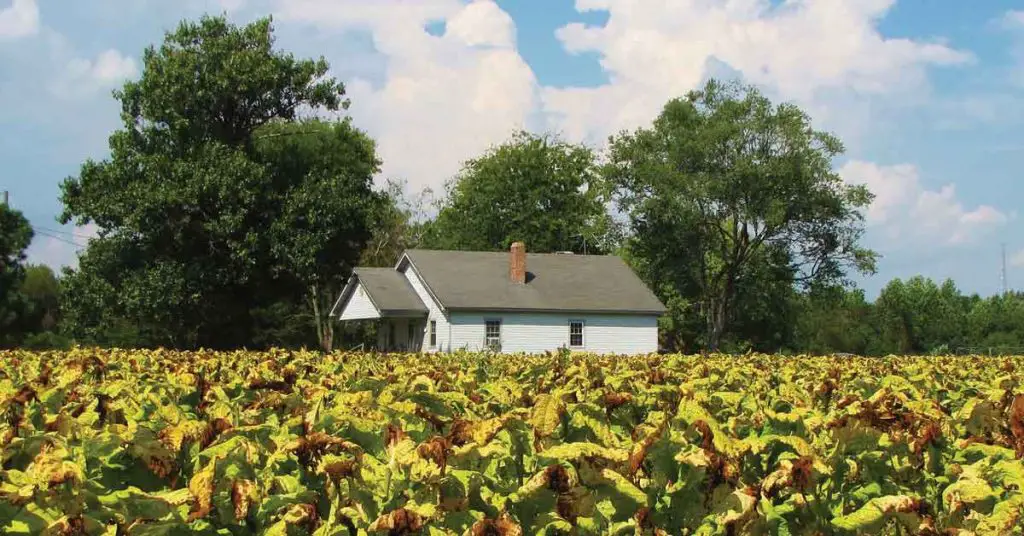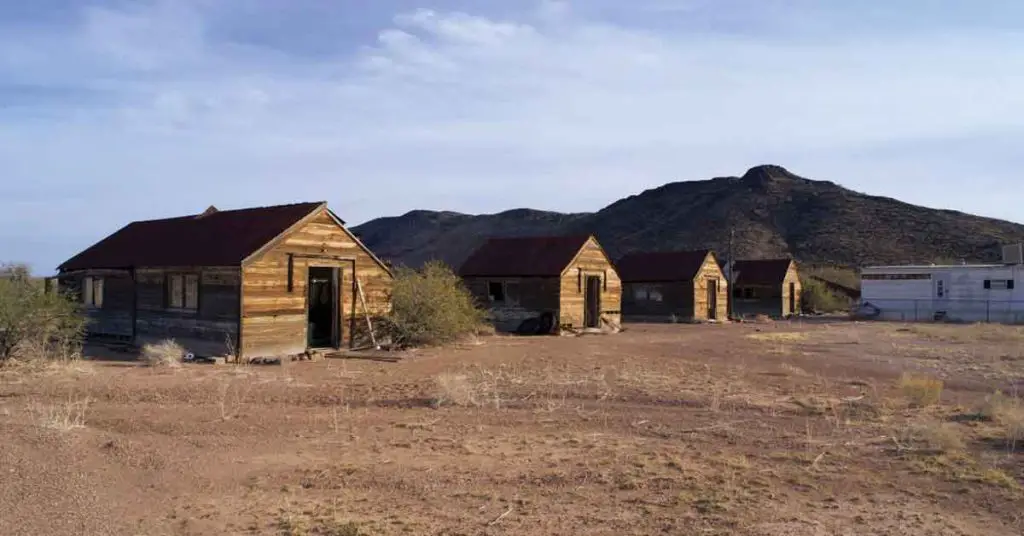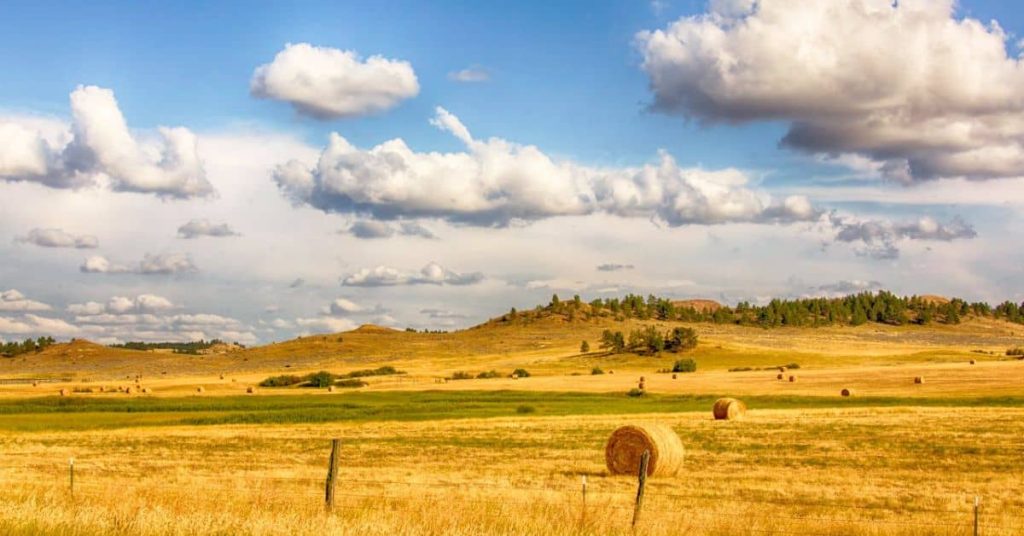Introduction
Hello and welcome, fellow nature enthusiasts and aspiring homesteaders! If you’ve ever dreamed of a life more connected to the earth, where your daily rhythms are in tune with the land, then you’re in the right place. Today, we’re diving into the heart of ‘Homesteading in North Carolina,’ a journey that combines the rustic charm of traditional living with the vibrant, sustainable practices of today.
Homesteading, at its core, is about creating a self-sufficient lifestyle, and North Carolina, with its lush landscapes and welcoming communities, offers a perfect canvas for this as one of the best states for homesteading in USA. From the rolling hills of the Piedmont to the serene beauty of the Appalachian Mountains, each corner of the Tar Heel State presents unique opportunities and adventures for homesteaders.
In this article, we’re not just talking about planting a garden or raising chickens; we’re exploring a way of life. Whether you’re drawn to the idea of growing your own food, harnessing natural resources, or building a community around sustainable practices, North Carolina’s diverse environment and supportive homesteading laws make it an ideal place to start.
Our goal here is simple: to guide you, step by step, on your path to sustainable living in North Carolina. We’ll cover everything from the basics of setting up your homestead to the nitty-gritty of living in harmony with the land. So, whether you’re a seasoned homesteader or just getting your feet wet, there’s something here for everyone.
Let’s embark on this exciting journey together, discovering the joys and challenges of homesteading in North Carolina. Welcome aboard!
Understanding Homesteading in North Carolina
Homesteading in North Carolina is more than just a way of life; it’s a journey into self-sufficiency and a deeper connection with the land. In this section, we’ll unwrap the layers of what makes homesteading in this vibrant state a unique and rewarding experience. From the lush mountains to the coastal plains, North Carolina offers a diverse canvas for homesteaders. We’ll also touch upon the legal aspects and community support that make this state a haven for those looking to start their homesteading journey.
Defining ‘Homesteading in North Carolina’
- A Blend of Tradition and Innovation: At its heart, homesteading in North Carolina is about blending traditional practices with modern sustainability. This means growing your own food, raising livestock, and living a life less dependent on external systems, all while using innovative methods to enhance efficiency and productivity.
- Diverse Landscapes for Diverse Practices: Whether you’re nestled in the Appalachian Mountains or settled in the rolling Piedmont, North Carolina’s varied geography offers a multitude of opportunities for different types of homesteading. Each area comes with its own set of advantages, from fertile soil to ideal climates for various crops and livestock.
- Community and Legal Support: North Carolina’s homesteading community is robust and welcoming, offering a wealth of knowledge and support. Additionally, the state’s homestead laws provide certain protections and benefits, making it an attractive destination for new and experienced homesteaders alike.
The Appeal of North Carolina for Homesteading
- Climate Advantages: The state’s climate is a boon for homesteaders, offering a long growing season and relatively mild winters. This climate diversity allows for a wide range of agricultural activities throughout the year.
- Land Availability and Affordability: Compared to many other states, North Carolina still boasts relatively affordable land prices, making it accessible for those starting out. The availability of both rural and suburban plots allows for various scales and types of homesteading.
- A Thriving Homesteading Community: From local farmers’ markets to homesteading workshops and online forums, the community here is active and always ready to lend a hand or share advice. This sense of community is invaluable for beginners and experienced homesteaders alike.
North Carolina’s Homestead Laws
- Understanding the Legal Landscape: North Carolina’s homestead laws offer certain protections, like exemption from property taxes and safeguarding against bankruptcy, which can be crucial for homesteaders.
- Navigating Regulations: While these laws provide support, it’s also important to understand local zoning and agricultural regulations to ensure your homestead complies with state and local guidelines.
In wrapping up this section, we’ve seen how homesteading in North Carolina offers a unique blend of traditional and sustainable practices, supported by a welcoming community and beneficial homestead laws. This makes it an ideal setting for both new and experienced homesteaders. As we transition to the next section, we’ll explore the practical steps to start your homestead in North Carolina, from land selection to sustainable farming basics, equipping you with the knowledge to embark on your homesteading journey in the Tar Heel State.
First Steps to Homesteading in North Carolina
Embarking on a homesteading journey in North Carolina is an exciting venture. This section aims to guide you through the initial steps, ensuring a solid foundation for your sustainable living dream. Let’s dive into the essentials of starting your homestead in the Tar Heel State.

Starting Your Homestead: Land, Law, and Planning
- Land Acquisition: Begin by researching available land. Consider factors like soil quality, water sources, and proximity to markets or resources. North Carolina offers diverse landscapes, from mountainous regions to coastal plains, each with its unique advantages.
- Legal Considerations: Familiarize yourself with local zoning laws and building codes. North Carolina’s homestead laws provide certain protections, but it’s crucial to understand the specifics, such as property tax exemptions and building regulations.
- Initial Planning: Draft a clear plan outlining your homesteading goals. This should include the type of farming or gardening you intend to do, livestock management (if applicable), and sustainability practices you wish to implement.
Understanding Local Agriculture Zones
- Climate and Soil: North Carolina’s varied climate zones affect what crops and livestock thrive in different areas. Research the specific zone of your land to plan suitable crops and farming methods.
- Seasonal Planning: Align your planting and harvesting schedules with the local climate. North Carolina’s growing seasons can vary significantly from the mountains to the coast.
Setting Realistic Goals and Expectations
- Start Small: It’s easy to get overwhelmed. Begin with manageable projects and expand as you gain experience and confidence.
- Learning Curve: Accept that there will be challenges and learning opportunities. Connect with local homesteading groups or agricultural extension offices for advice and support.
- Patience is Key: Remember, homesteading is a long-term commitment. Progress may be slow at first, but with patience and perseverance, your efforts will yield fruitful results.
As we move forward, keep in mind that homesteading is as much about the journey as it is about the destination. In the next section, we’ll delve into the specifics of sustainable farming practices in North Carolina, helping you to cultivate a thriving and eco-friendly homestead.
Sustainable Farming Practices in North Carolina
In the heart of North Carolina, sustainable farming is not just a practice; it’s a way of life that respects the land and nurtures the environment. This section delves into the core of eco-friendly farming practices, tailored specifically for the Tar Heel State’s unique climate and soil conditions.
Embracing Sustainable Farming
- The Essence of Sustainability: Sustainable farming in North Carolina focuses on practices that enhance soil health, conserve water, and promote biodiversity. It’s about creating a self-sustaining ecosystem that supports both the land and the homesteader.
- Importance in North Carolina: With its diverse landscapes, from the Appalachian Mountains to the Atlantic coast, sustainable practices are crucial in maintaining the natural beauty and agricultural productivity of the state.
Eco-Friendly Farming Techniques
- Organic Gardening: Embrace organic methods by avoiding synthetic fertilizers and pesticides. Utilize compost, natural pest control, and crop rotation to maintain soil health and productivity.
- Permaculture Principles: Implement permaculture designs that mimic natural ecosystems. This includes creating polycultures, utilizing native plants, and designing landscapes that work with, not against, nature.
- Conservation Practices: Adopt water conservation techniques like rainwater harvesting and drip irrigation. These practices are especially important in North Carolina’s varying climate zones.
Tailoring to North Carolina’s Climate and Soil
- Ideal Crops: Certain crops thrive in North Carolina’s climate. Consider planting sweet potatoes, tobacco, and various greens in warmer regions, while apples, berries, and leafy vegetables do well in cooler areas.
- Livestock Choices: For those interested in animal husbandry, North Carolina’s climate is conducive to raising chickens, goats, and bees. Each of these livestock options offers unique benefits, from eggs and milk to pollination and honey production.
Sustainable farming in North Carolina is a rewarding endeavor that connects you deeply with the land and its natural rhythms. As we continue our journey through homesteading in the Tar Heel State, our next section will explore the vital role of water management and conservation, ensuring your homestead thrives in harmony with the environment.
Building Your Homestead Community
Homesteading in North Carolina is more than just a solitary journey; it’s about being part of a community that shares your passion for sustainable living. This section explores the significance of building a strong homestead community and offers practical ways to connect with like-minded individuals across the Tar Heel State.

The Importance of Community in Homesteading
- Strength in Numbers: A supportive community provides a wealth of shared knowledge, resources, and encouragement, essential for both novice and experienced homesteaders.
- Learning and Growing Together: Engaging with a community allows for the exchange of innovative ideas, solutions to common challenges, and celebrating successes together.
Connecting with Local Homesteaders
- Local Homesteading Groups: Seek out local homesteading or gardening groups in your area. These can be found through social media, community bulletin boards, or local agricultural extensions.
- Networking Events: Attend local farmers’ markets, agricultural fairs, and homesteading workshops. These events are not only great for sourcing local products but also for meeting fellow homesteaders and learning from their experiences.
Leveraging Community Resources
- Workshops and Educational Events: Keep an eye out for workshops or classes offered by local agricultural extensions, community colleges, or gardening clubs. These can range from organic gardening techniques to sustainable building practices.
- Online Forums and Social Media: Utilize online platforms to connect with wider homesteading communities. Websites like North Carolina Homesteading Group or Tar Heel Farmers Online can be invaluable resources for advice, inspiration, and support.
- Community Supported Agriculture (CSA): Joining a CSA not only supports local farmers but also connects you with a network of people who value sustainable, locally-grown food.
Building a strong homestead community in North Carolina is about creating lasting relationships and a support system that enriches your homesteading journey. As we move forward, our next section will delve into the practical aspects of managing your homestead finances, ensuring your sustainable lifestyle is also economically viable.
Embracing Self-Sufficiency
In the heart of North Carolina’s verdant landscapes, homesteaders find a unique opportunity to embrace self-sufficiency. This section delves into practical strategies for achieving a self-reliant lifestyle while maintaining a harmonious balance with the community. Drawing from the experiences of successful homesteaders in the Tar Heel State, we offer insights and inspiration for your journey towards self-sufficiency.
Strategies for Self-Sufficient Living
- Renewable Energy Solutions: Explore options like solar panels or wind turbines. North Carolina’s climate is conducive to these sustainable energy sources, reducing reliance on external power grids.
- Water Conservation Techniques: Implement rainwater harvesting systems and drip irrigation to maximize water efficiency. These practices are not only eco-friendly but also cost-effective in the long run.
- Sustainable Food Production: Cultivate a vegetable garden, raise chickens for eggs, or keep bees for honey. Growing your own food reduces dependence on commercial food systems and ensures a healthier diet.
Balancing Self-Reliance and Community Interdependence
- The Value of Trade and Barter: While self-sufficiency is the goal, trading surplus produce or skills with neighbors fosters a strong community bond and resource sharing.
- Learning from Others: Engage with local homesteading groups to learn new skills or troubleshoot challenges. This collaborative approach enriches your homesteading experience.
Success Stories from North Carolina Homesteads
- Case Studies: Share stories of individuals or families who have successfully achieved a self-sufficient lifestyle. Highlight their strategies, challenges, and how they overcame them.
- Inspiration and Motivation: These success stories serve as a powerful motivation for new homesteaders, showing that self-sufficiency is an achievable goal.
Embracing self-sufficiency in North Carolina is a rewarding journey that combines individual effort with community support. As we conclude this section, we transition to exploring the joys and challenges of rural living in North Carolina, offering insights into how to make the most of your homesteading experience in this diverse and beautiful state.
Challenges and Solutions
Homesteading in North Carolina, like any worthwhile endeavor, comes with its own set of challenges. But fear not! In this section, we’ll tackle these hurdles head-on, offering practical solutions and strategies to turn obstacles into opportunities. Remember, every challenge is a chance to grow stronger and more resilient in your homesteading journey.
Addressing Common Challenges
- Weather Variability: North Carolina’s weather can be unpredictable. Learn to adapt by choosing crops and livestock suited to a range of conditions and investing in weather-resistant infrastructure.
- Pest Management: Pests can be a nuisance. Implement organic pest control methods, such as companion planting and natural predators, to keep them at bay without harming the environment.
- Market Fluctuations: The market for homestead products can be volatile. Diversify your homestead’s produce and consider value-added products to stabilize income.
Practical Solutions and Preventative Strategies
- Building Robust Systems: Develop systems that can withstand adverse conditions. This includes sturdy fencing, efficient water systems, and resilient crop varieties.
- Community Learning: Engage with local homesteading groups to learn from their experiences. Sharing knowledge about pest control or weatherproofing can be invaluable.
- Financial Planning: Keep a buffer for lean times and explore various income streams. This might include agritourism, online sales, or teaching workshops.
Encouraging Resilience and Adaptability
- Mindset is Key: Adopt a mindset of resilience. View challenges as learning opportunities and stay flexible in your approach.
- Continuous Learning: Stay informed about new techniques and technologies in sustainable living. Attend workshops, read books, and stay connected with the homesteading community.
- Celebrate Small Victories: Every challenge overcome is a victory. Celebrate these moments and share your successes and lessons with others.
As we wrap up this section, remember that the path of homesteading is as rewarding as it is challenging. These obstacles are not roadblocks but stepping stones to a more sustainable and fulfilling lifestyle. Next, we’ll explore the joys of rural living in North Carolina, highlighting the unique pleasures and experiences that make this journey so enriching.
The Future of Homesteading in North Carolina
As we look towards the horizon, the future of homesteading in North Carolina shines with promise and potential. This section delves into the evolving landscape of homesteading in the Tar Heel State, highlighting the trends, technological advancements, and the growing community spirit that are shaping its future. Let’s explore what lies ahead and how you can be an integral part of this exciting journey.

Trends and Future Prospects
- Sustainable Innovations: Witness a surge in eco-friendly technologies and sustainable practices that are revolutionizing homesteading. From solar-powered systems to water conservation techniques, the future is green.
- Community Supported Agriculture (CSA) Growth: As mentioned previously also, the rise of CSAs is fostering a stronger bond between homesteaders and consumers, emphasizing the importance of local, fresh produce.
- Young Homesteaders: A growing number of younger individuals and families are embracing homesteading, bringing fresh perspectives and energy to the community.
The Role of Technology and Innovation
- Smart Farming Tools: Embrace smart agriculture tools that offer efficiency and precision. From soil sensors to climate-controlled greenhouses, technology is making homesteading more accessible and productive.
- Innovative Marketing Strategies: Utilize digital marketing to reach a broader audience. Online marketplaces, social media platforms, and homesteading blogs are great ways to promote your produce and share your story.
Online Learning and Networking
The internet is a treasure trove of resources. Engage in online courses, webinars, and social media groups to stay updated and connected with fellow homesteaders.
- Modern Farmer Online Learning: Modern Farmer offers a range of online courses and resources that cover various aspects of farming and homesteading. Their courses are suitable for all levels and provide practical, hands-on advice. Visit Modern Farmer.
- Mother Earth News Fair Online: This platform offers access to a vast library of homesteading and gardening workshops. The topics range from sustainable living to organic gardening, perfect for homesteaders looking to expand their knowledge. Explore Mother Earth News Fair Online.
- The National Young Farmers Coalition (NYFC): NYFC provides resources and networking opportunities for young farmers and homesteaders. They offer webinars, training programs, and a supportive community for those starting in homesteading. Check out NYFC.
- Homesteading and Permaculture by Permies.com: This site offers forums, articles, and podcasts on permaculture and homesteading topics. It’s a great place to connect with like-minded individuals and learn from experienced homesteaders. Visit Permies.com.
- Local Harvest’s CSA Directory: For those interested in Community Supported Agriculture, Local Harvest provides a comprehensive directory of CSAs across the United States, including North Carolina. It’s a great resource to connect with local farmers and like-minded community members. Find CSAs on Local Harvest.
- Facebook Groups and Online Forums: Platforms like Facebook have numerous groups dedicated to homesteading, sustainable living, and specific interests like gardening, poultry, and DIY projects. These groups are great for asking questions, sharing experiences, and connecting with others.
- Coursera and Udemy: These online learning platforms offer courses on agriculture, sustainability, and environmental science. They are ideal for those who prefer structured learning and want to gain in-depth knowledge in specific areas. Explore Courses on Coursera and Find Courses on Udemy.
Being Part of the Evolving Landscape
- Adapt and Evolve: Stay open to new ideas and practices. The ability to adapt is key in the ever-changing world of homesteading.
- Community Engagement: Get involved in local homesteading groups, workshops, and events. Sharing knowledge and experiences strengthens the community and fosters growth.
- Contribute to Sustainable Practices: Your choices and practices contribute to a larger movement towards sustainability. Every small step counts in making a positive impact on the environment and the community.
As we conclude this section, it’s clear that the future of homesteading in North Carolina is not just about individual efforts, but about a collective movement towards a sustainable, interconnected community. The journey ahead is filled with opportunities for growth, innovation, and community building. Let’s step forward together, embracing the future with optimism and a commitment to sustainable living.
Conclusion: Homesteading in North Carolina
As we wrap up our journey through ‘Homesteading in North Carolina: Embracing Sustainable Living in the Tar Heel State’, let’s take a moment to reflect on the key insights we’ve explored. From understanding the unique aspects of homesteading in the beautiful state of North Carolina, to taking those first crucial steps towards establishing your homestead, we’ve covered a range of topics to guide you on this rewarding path.
We delved into the importance of sustainable farming practices, highlighting how they are not just beneficial for the environment but also for the long-term success of your homestead. We also emphasized the value of building a strong community around your homestead, tapping into local resources and knowledge to enrich your homesteading experience.
Embracing self-sufficiency emerged as a central theme, where we discussed strategies to achieve a balance between independence and community interdependence. This balance is key to a successful and fulfilling homesteading lifestyle. We also addressed the challenges you might face along the way, offering practical solutions and encouraging a spirit of resilience and adaptability.
Looking towards the future, we touched upon the evolving landscape of homesteading in North Carolina, underscoring the role of innovation and technology in shaping this lifestyle. As we move forward, these elements will continue to play a significant role in the development of sustainable homesteading practices.
Now, it’s your turn to take these insights and apply them to your homesteading journey in North Carolina. Whether you’re just starting out or looking to enhance your existing homestead, remember that every step you take is a move towards a more sustainable, self-sufficient, and fulfilling way of life.
We invite you to share your experiences, questions, and feedback. Your journey is unique, and your insights are valuable to the homesteading community. And if you’re eager to continue learning and exploring the world of homesteading in North Carolina, be sure to follow our blog. Here, you’ll find a wealth of information, tips, and stories to inspire and guide you along the way.
Thank you for joining us on this adventure. Here’s to your success in homesteading in the Tar Heel State!
Disclaimer: The information provided in this article is for general informational purposes only and is not intended to be a substitute for professional advice. The author of this article does not claim to be an expert in homesteading and the information provided should not be relied upon to make decisions about your own homesteading journey. Please do your own research and consult with a qualified professional before making any decisions about your homestead.
Share via:
Shaun Alexander is the main writer and editor for HomesteadingSimple.com. With a strong passion for homesteading and sustainability, Shaun has dedicated his life to learning and sharing information about a simple, fulfilling existence tied to the land. His expertise ranges from gardening and livestock management to off-grid living and DIY projects, reflecting the diverse skills necessary for a successful homesteading lifestyle. Shaun’s goal is to inspire and educate others about the possibilities of homesteading, whether in rural, suburban, or urban settings, and to provide practical advice and tips for both beginners and seasoned homesteaders. He believes in a future where more people return to their roots, embracing a life of self-sufficiency and harmony with nature.





